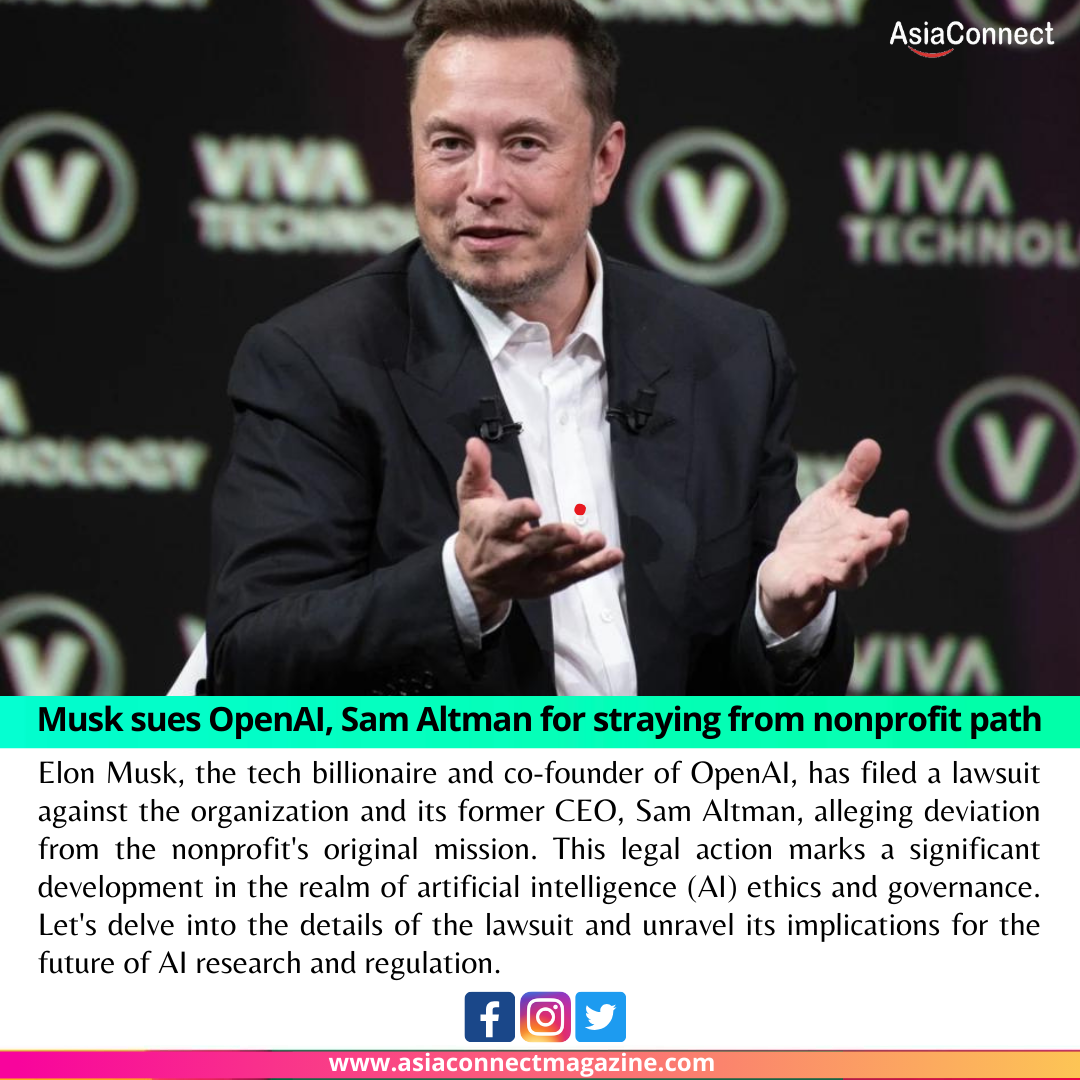Elon Musk, the tech billionaire and co-founder of OpenAI, has filed a lawsuit against the organization and its former CEO, Sam Altman, alleging deviation from the nonprofit’s original mission. This legal action marks a significant development in the realm of artificial intelligence (AI) ethics and governance. Let’s delve into the details of the lawsuit and unravel its implications for the future of AI research and regulation.
OpenAI was founded in 2015 with the mission of advancing AI in a manner that benefits humanity as a whole. Initially structured as a nonprofit organization, OpenAI aimed to pursue cutting-edge research in AI while ensuring that the technology remained safe, ethical, and aligned with societal interests. Elon Musk, along with other prominent figures in the tech industry, played a pivotal role in establishing and funding OpenAI’s endeavors.
However, according to Musk’s lawsuit, OpenAI has veered off course from its nonprofit roots, opting for a more profit-driven approach that prioritizes commercial interests over the broader societal good. The lawsuit alleges that under Sam Altman’s leadership, OpenAI made decisions that were inconsistent with its original mission, including pursuing lucrative partnerships with private entities and prioritizing financial gains over ethical considerations.
Musk’s legal action underscores the growing tension between commercial interests and ethical principles in the development and deployment of AI technologies. As AI continues to permeate various aspects of society, concerns about its potential implications for privacy, security, and social equity have become increasingly prominent. Organizations like OpenAI have a crucial role to play in ensuring that AI is developed and deployed responsibly, with due consideration for its societal impact.
The lawsuit against OpenAI and Sam Altman raises important questions about the governance and accountability of AI research organizations. Should organizations like OpenAI prioritize financial sustainability over their nonprofit mission? How can the interests of various stakeholders, including researchers, investors, and the general public, be balanced in the pursuit of AI development?
Furthermore, Musk’s legal action highlights the complex dynamics between founders, investors, and leadership within nonprofit organizations. While founders like Musk may have a vision for the organization’s mission and values, diverging perspectives among stakeholders can lead to conflicts over strategic direction and decision-making. The lawsuit against OpenAI underscores the challenges of maintaining organizational alignment and integrity in the face of evolving priorities and interests.
From a broader perspective, Musk’s lawsuit against OpenAI and Sam Altman reflects the broader debate surrounding the governance and regulation of AI technologies. As AI continues to evolve rapidly, policymakers, industry stakeholders, and civil society groups are grappling with questions about how to ensure that AI development and deployment are guided by ethical principles, transparency, and accountability.
In conclusion, Elon Musk’s lawsuit against OpenAI and Sam Altman shines a spotlight on the complex dynamics and ethical considerations inherent in AI research and governance. As AI technologies continue to shape our society and economy, it is imperative that organizations like OpenAI uphold their commitment to advancing AI in a manner that benefits humanity as a whole. The outcome of this legal action will undoubtedly have far-reaching implications for the future of AI research, regulation, and governance.





